Joseph Ratzinger/Pope Benedict XVI Collection (14 vols.)
Digital Logos Edition
Overview
Joseph Ratzinger, now Pope Benedict XVI, is one of the most revered Catholic scholars, theologians, teachers, and authors of our time. His profound treatment of Christianity's basic truths combines a spiritual outlook with a deep knowledge of Scripture, history, and theology. The Joseph Ratzinger/Pope Benedict XVI Collection contains fourteen volumes that explore Catholic theology, dogma, and practice. Though some of the volumes were written prior to his papacy, they are still equally as significant and relevant to the Christian faith today. Ratzinger's works will give you a better understanding of the:
- Importance of Christian unity
- Nature of the church
- Relationship of Christianity with politics and the secular world
- Foundations of Christianity: faith, hope, and charity
- Beauty and mystery of God
- Problem of truth, tolerance, religion, and culture in the modern world
The Joseph Ratzinger/Pope Benedict XVI Collection is not just an important collection because its works are written by the current leader of the worldwide Catholic Church. It is significant because it contains rich wisdom and insight to the Christian faith that are both timeless and true.
With the Logos Bible Software edition of Joseph Ratzinger/Pope Benedict XVI Collection, the reader has an abundance of resources that offer applicable and insightful material for their study. You can easily search the subject of Christian unity and access an assortment of useful resources and perspectives from a variety of pastors and theologians.
Check out the latest expansion to this collection: Joseph Ratzinger/Pope Benedict XVI Collection Upgrade (21 vols.).
- Essential works of Catholic theology and dogma
- Ideal for clergy, students, and laity
- Logos edition provides integrated access to Scripture references
- Title: Joseph Ratzinger/Pope Benedict XVI Collection
- Author: Joseph Ratzinger
- Publisher: Ignatius
- Volumes: 14
- Pages: 3,291
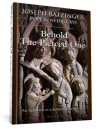
In this profound and illuminating work, Joseph Cardinal Ratzinger turns the gaze of an accomplished theologian upon the crucified Savior. This synthetic and meditative work is theological without being abstract or dry, and spiritual without being sentimental. The pierced heart of Christ must be the heart of theology and Christian life as well.
Proceeding from the prayerful dialogue between the incarnate Son and his eternal Father, Joseph Ratzinger shows how one can approach the mystery of the heart of Christ only through the imitation of this prayer. To know and understand Jesus, we must participate in his prayer. The prayer of Christ must be the interior life of all who are joined to him in his body, the church. Using the Old and New Testaments and the Church Fathers, Ratzinger shows that the ecclesial community (the church) was born from the pierced heart of Christ on the cross.
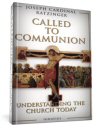
This is a book of wisdom and insight that explains how providential are the trials through which the Catholic Church is now passing. Topics covered include:
- The need of the papal primacy to ensure Christian unity
- The true meaning of the priesthood as a sacrament and not a mere ministry
- The necessity of the Eucharist as the sacrifice of the Savior now offering Himself on our altars
- The role of the bishops as successors of the apostles, united with the successor of St. Peter, the Bishop of Rome
- The value of suffering in union with Christ crucified
- The indispensable service of the laity in the apostolate
All these themes received from Cardinal Ratzinger bring new clarity and depth.
Cardinal Ratzinger offers us what he calls a 'primer of Catholic ecclesiology.' As a true theologian, he clarifies the nature of church, bishop and priest, basing his remarks on Scripture and tradition. The book offers penetrating insights into the church from a profound thinker. This is Catholic theology at its best and as it should be.
—Fr. Kenneth Baker, S. J., Editor, Homiletic & Pastoral Review
Cardinal Ratzinger guides us through today's confusion about the faith back to the core from which the life of the church unfolds: communion. At the end of the journey, we not only have a better grasp of the controverted issues of the day, but also a renewed understanding of the central mystery of the church and a powerful encouragement to the theological and spiritual renewal envisaged by the Second Vatican Council.
—David Schindler, Editor, Communio
This is a goldmine of insights which brings out the development of Catholic doctrine in our day without surrendering one iota of the deposit of faith entrusted to the church by her Divine Founder.
—Fr. John Hardon, S. J., Editor, The Treasury of Catholic Wisdom
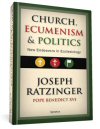
This work features the most discussed topics of the life of the church, treated with unique frankness and depth by the church’s spiritual and theological leader. In this collection of essays, theologian Joseph Ratzinger, now Benedict XVI, tackles three major issues in the church today—the nature of the church, the pursuit of Christian unity, and the relationship of Christianity to the secular/political power.
The first part of the book explores Vatican II's teaching on the church, what it means to call the church "the people of God", the role of the pope, and the Synod of bishops. In part two, Ratzinger frankly assesses the ecumenical movement—its achievements, problems, and principles for authentic progress toward Christian unity. In the third part of the work, Ratzinger discusses both fundamental questions and particular issues concerning the church, the state and human fulfillment in the age to come. What does the Bible say about faith and politics? How should the church work in pluralistic societies? What are the problems with liberation theology? How should we understand freedom in the church and in society?
Beneath a penetrating analysis on these important topics by this brilliant teacher and writer, both concise and also surprising, is revealed the passion of a great spiritual leader. The result is an exciting and stimulating work, which can be provoking, but never boring.
In tricky theological disputes, Pope Benedict XVI separates the wheat from the chaff—a gift for precision that defines this compendium of his thought on ecclesiology and ecumenism. Dating from the 1970s and 1980s, the essays, interviews and lectures contained in this book remain highly relevant. Careful distinctions are his winnowing fork as he cuts through the confusion to identify what is orthodox and heterodox in the important controversies of our time.
—George Neumayr, Editor, Catholic World Report
In this wonderful collection of essays, Pope Benedict XVI offers to us a sophisticated, though accessible, understanding of the relationship between politics, the church, and the differing religious communities that encounter one another across the globe. The vision that the pope imparts is one that supports religious liberty without entailing theological relativism. He shows us that one can take theology and ecclesiology seriously, as authoritative knowledge traditions, without rejecting the best insights of Enlightenment liberalism.
—Francis J. Beckwith, Associate Professor of Philosophy and Church-State Studies, Baylor University
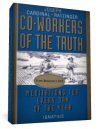
Cardinal Ratzinger offers selected passages from his profound spiritual and theological writings as meditations for each day of the year. He picked the title of this book from verse 8 in the third letter of St. John, which he also adapted for his coat of arms: "Co-Workers of the Truth." Just as these words signify for St. John the participation of all the faithful in the service of the Gospel, which includes the faithful extending hospitality to all who come as messengers of faith, so too Ratzinger shows the importance of our uniting charity with truth to make possible the proclamation of the Gospel. Through his meditations here, he hopes to help awaken in each reader the courage and generosity to become co-workers with the Gospel, which is the truth of Jesus Christ.
Man cannot be truly free but through love, the supreme love of God and the love of men, brethren, neighbors, countrymen. . . . This is what Christ, whose love knew no bounds, teaches us.
—Pope John Paul II
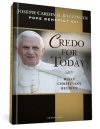
What do Christians believe? What gives meaning to our life? What is the purpose of life? The Christian answer to these questions is found in the Creed, in the profession of faith. But what do the articles of this confession actually mean? And how do they affect our lives?
Joseph Ratzinger, now Pope Benedict XVI, takes a fresh look at these timeless questions. This work is a reflection of the profound, personal insights of Benedict XVI, but also of the great foundations of Christianity: faith, hope, and charity.
Ratzinger writes eloquently and persuasively about the importance for followers of Christ to understand well what they believe so one can live as a serious Christian in today’s secular world. He talks in depth about the true meaning of faith, hope, and love—the love of God and the love of neighbor. He also discusses the crucial importance of a lived faith, for the believer himself as well as being a witness for our age, and striving to bring faith in line with the present age that has veered off into rampant secularism and materialism.
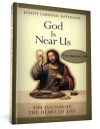
The Second Vatican Council says, “We ought to try to discover a new reverence for the Eucharistic mystery. Something is happening that is greater than anything we can do. The liturgy is the summit toward which the activity of the church is directed; it is the font from which all her power flows.”
This profound statement about the Eucharist stands at the center of this book by Cardinal Ratzinger. He compellingly shows us the biblical, historical, and theological dimensions of the Eucharist. The Cardinal draws far-reaching conclusions, focusing on the importance of one's personal devotion to and adoration of the Blessed Sacrament, for the personal reception of communion by the individual Christian, as well as for the life of the church. For Ratzinger, any transformation of the world on the social plane grows out of the celebration of the Eucharist. He beautifully illustrates how the omnipotent God comes intimately close to us in the holy Eucharist, the heart of life.
Not only does Ratzinger shed his customary theological light on many subjects, but as he does in other books, he applies his insights very directly to Catholic life and devotion. Coming at this time, this book is part of the effort of many to see the Eucharist restored to the center of Catholic piety and devotion.
—Fr. Benedict Groeschel, C. F. R., Author, The Rosary: Chain of Hope
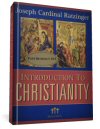
One of Cardinal Ratzinger's most important and widely read books, this volume is a revised second edition with an improved translation and an in-depth twenty page preface by the Cardinal. As he states in the preface, since this book was first published over 30 years ago, many changes and significant events have occurred in the world, and in the church. But even so, he says he is firmly convinced that his fundamental approach in this book is still very timely and crucial for the spiritual needs of modern man. That approach puts the question of God and the question about Christ in the very center, which leads to a "narrative Christology" and demonstrates that the place for faith is in the church.
Thus, this remarkable elucidation of the Apostles' Creed gives an excellent, modern interpretation of the foundations of Christianity. Ratzinger's profound treatment of Christianity's basic truths combines a spiritual outlook with a deep knowledge of Scripture and the history of theology.
Cardinal Ratzinger offers us a profound meditation on the twelve articles of the Apostles' Creed. These reflections will challenge and expand one's knowledge of the Catholic faith. He addresses and answers many of the modern objections to faith in God the Father and Creator, his only-begotten Son, Jesus Christ, the Holy Spirit, and the Catholic Church. This is solid food that must be eaten slowly, but it is very nourishing and worth the effect.
—Fr. Kenneth Baker S. J., Editor, Homiletic and Pastoral Review
It takes a great deal of courage to attempt to give a commentary on the Apostles' Creed today. Ratzinger has done this in an admirable fashion. His book is profound, contemporary, straightforward.
—Review for Religious
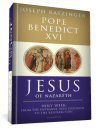
Why was Jesus rejected by the religious leaders of his day? Who was responsible for his death? Did he establish a church to carry on his work? How did Jesus view his suffering and death? How should we? And, most importantly, did Jesus really rise from the dead and what does his resurrection mean? The story of Jesus raises many crucial questions.
Jesus of Nazareth is the Son of God, and no myth, revolutionary, or misunderstood prophet, insists Benedict XVI. He thinks that the best of historical scholarship, while it can't "prove" Jesus is the Son of God, certainly doesn't disprove it. Indeed, Benedict maintains that the evidence, fairly considered, brings us face-to-face with the challenge of Jesus—a real man who taught and acted in ways that were tantamount to claims of divine authority, claims not easily dismissed as lunacy or deception.
Benedict brings to his study the vast learning of a brilliant scholar, the passionate searching of a great mind, and the deep compassion of a pastor's heart. In the end, he dares readers to grapple with the meaning of Jesus' life, teaching, death, and resurrection.
Working from Scripture, the Church Fathers and contemporary scholarship, Benedict XVI deftly brings together the historical and theological dimensions of the gospel portraits of Jesus. This is a splendid, penetrating study of the central figure of Christian faith; a learned and spiritual illumination not only of who Jesus was, but who he is for us today.
—Charles J. Chaput, O. F. M. Cap., Archbishop of Denver
What better guide could you find than Benedict XVI to lead you on the bracing adventure of exploring the historical Jesus and discovering, under the tutelage of this most sage successor to Peter, the inner meaning of Jesus' death and resurrection. Faith and reason are the two wings Benedict XVI takes up to lead us to astonishingly fresh spiritual perspectives and dizzying heights. This book often takes one's breath away, while infusing in the reader the God-breathed Word, which is the Gospel.
—Tim Gray, President, Augustine Institute
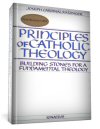
Principles of Catholic Theology is a collection of articles and talks written around a central theme: the fundamental structure of Christianity. This volume discusses Catholicism, the inter-relationship of other forms of Christianity, and the features that distinguish Catholicism from other Christian theologies. Ratzinger outlines the fundamental principles of theology and the proper relationship of theology to church teaching and authority.
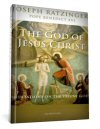
God is—and the Christian faith adds: God is as Father, Son, and Holy Spirit, three and one. This is the very heart of Christianity, but it is so often shrouded in a silence born of perplexity. Has the church perhaps gone one step too far here? Ought we not rather leave something so great and inaccessible as God in His inaccessibility? Can something like the Trinity have any real meaning for us? It is certainly true that the proposition that "God is three and God is one" is and remains the expression of His otherness, which is infinitely greater than us and transcends all our thinking and our existence. But, as Joseph Ratzinger shows, if this proposition meant nothing to us, it would not have been revealed! And as a matter of fact, it could be clothed in human language only because it had already penetrated human thinking and living to some extent.
In this book of meditations, based on a series of homilies and meditations presented and compiled by the author shortly before he became Archbishop of Munich-Freising, in 1977, theologian Joseph Ratzinger (now Pope Benedict XVI) presents his profound thoughts on the nature and person of God. Building a bridge between theology and spirituality, he makes wide use of the sacred scriptures to reveal the beauty and mystery of who God is. He writes about each of the three persons in the Holy Trinity, showing the different attributes of each person, and that “God is three and God is one.”
In this profound series of meditations, Ratzinger shows the enduring core of his theology. The future pope begins with an ancient Jewish story: The prophet Jeremiah and his son one day succeeded in creating a living man, through the correct combination of words and letters. 'Now that you are able to create a man, God is dead. My life is the death of God,' the man says. Ratzinger then shows that man’s knowledge of God depends on the relationship that a man establishes between himself and the world and his life; that the question of whether God exists can be answered only in terms of some image of who or what God is, of some sense of how he shapes the whole of our existence.
—David L. Schindler, John Paul II Institute
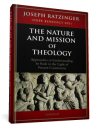
As Cardinal, Joseph Ratzinger wrote this book in response to the dialogue going on today concerning theology and the clarification of its methods, its mission, and its limits which he thinks has become urgent. Ratzinger states: "To do theology—as the Magisterium understands theology—it is not sufficient merely to calculate how much religion can reasonably be expected of man and to utilize bits and pieces of the Christian tradition accordingly. Theology is born when the arbitrary judgment of reason encounters a limit, in that we discover something which we have not excogitated ourselves but which has been revealed to us. For this reason, not every religious theory has the right to label itself as Christian or Catholic theology simply because it wishes to do so; whoever would lay claim to this title is obligated to accept as meaningful the prior given which goes along with it."
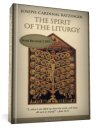
Considered by Ratzinger devotees as his greatest work on the liturgy, this profound and beautifully written treatment of the "great prayer of the church" will help readers rediscover the liturgy in all its hidden spiritual wealth and transcendent grandeur as the very center of our Christian life.
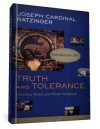
Is truth knowable? If we know the truth, must we hide it in the name of tolerance? Cardinal Ratzinger engages the problem of truth, tolerance, religion, and culture in the modern world. Describing the vast array of world religions, Ratzinger embraces the difficult challenge of meeting diverse understandings of spiritual truth while defending the Catholic teaching of salvation through Jesus Christ. "But what if it is true?" is the question that he poses to cultures that decry the Christian position on man's redemption. Upholding the notion of religious truth while asserting the right of religious freedom, Cardinal Ratzinger outlines the timeless teaching of the Magisterium in language that resonates with our embattled culture. A work of extreme sensitivity, understanding, and spiritual maturity, this book is an invaluable asset to those who struggle to hear the voice of truth in the modern religious world.
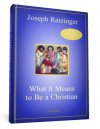
Joseph Ratzinger, now Pope Benedict XVI, writes eloquently and persuasively about how one can live as a serious Christian in today’s secular world. He talks in-depth about the true meaning of faith, hope, and love—the love of God and the love of neighbor. He also discusses at length the crucial importance of a lived faith, for the believer himself as well as being a witness for our age, and striving to bring faith in line with the present age that has veered off into rampant secularism and materialism. He passionately encourages the reader to practice a deep, abiding Christian faith that seeks to be at the service of humanity.
As Joseph Ratzinger mentions in the preface, "the book presents in written form three sermons that the author preached in the Cathedral at Muenster to a congregation from the Catholic Student Chaplaincy, December 13–15, 1964." In other words, these are essays derived from sermons preached to college students toward the end of Vatican II. They are remarkable, among other reasons, for their insights into the ongoing Christian struggle to understand and realize in action "what it means to be a Christian."
Joseph Ratzinger is one of the most revered Catholic prelates, scholars, theologians, teachers, and authors of our time. He has spoken on many crucial subjects, including sexual consumerism, roles of men and women today, marriage, the priesthood, and the future of the world. As a teenager, he initiated study of classical languages and entered the minor seminary in Traunstein in 1939. Though he was drafted into the German anti-aircraft corps in 1943, he re-entered the seminary in 1945, when World War II ended. On June 29, 1951, Joseph Ratzinger was ordained to the priesthood in the Cathedral of Freising on the Feast of Saints Peter and Paul. He also received his doctorate in theology in 1953 from the University of Munich. Starting in 1959, Ratzinger taught theology at the University of Bonn.
At age 35, Joseph Ratzinger was appointed chief theological advisor for the Archbishop of Cologne, Cardinal Joseph Frings, and maintained that title for four years. After many years of teaching at several German universities, Ratzinger was appointed by Pope Paul VI as Archbishop of Munich and Freising in March 1977, and was elevated to cardinal in June 1977. In November 1981, Ratzinger was summoned by Pope John Paul II to Rome, where he was named Prefect of the Congregation for the Doctrine of the Faith, President of the Pontifical Biblical Commission, and President of the International Theological Commission.
On April 19, 2005, Joseph Cardinal Ratzinger was elected to be the 265th pope. He took the name Benedict XVI, after St. Benedict of Nursia. Since that time, he has continued to receive worldwide respect and has been a spiritual influence to Christians and non-Christians alike.
Reviews
4 ratings

Faithlife User
9/12/2014

Fr. Kent R. Ouellette
3/12/2014
Francis Rozario
9/19/2013
Michael Maria Waldstein
8/25/2013